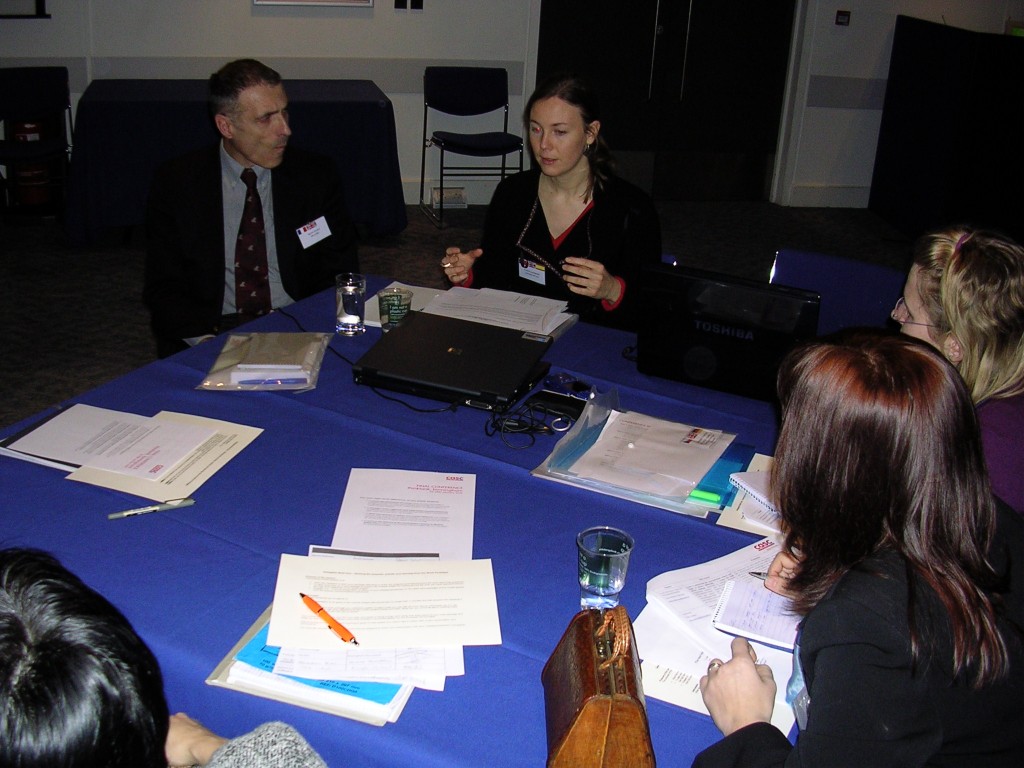The group of delegates who were involved in the Changing Behaviours work package includes Tim Caulton from Thinktannk, Anett Ruszanov (ERRIN), Dana Bekker Vejborna (South Moravian Centre for International Mobility), Pauline Lachappelle (Universite de Lyon) and Vladislava Pospisilova (Academy of Sciences of the Czech Republic), and other delegates floated between the groups around the room.
Below are some of the points, questions and suggestions which came out of this part of the discussion, which will feed into the presentations later today and the recommendations which the group will present tomorrow.
- it’s hard to engage our audience with climate change – ‘doom and gloom’ coverage in the press so they think they can’t make a difference
- good example of getting people to eat more healthily and to think about where their food comes from – steadily build up new habits – http://www.mrgoodfish.com/en/index.html
- science communication is specific to audiences and specific to countries – does that make it hard to translate elsewhere?
- some observations from Prague – the barriers to communication are too big for people to deal with; the information is too complicated for many people so they aren’t able to make decisions about it; costs of activities – to run and also for people to attend; lack of motivation for people to change their behaviour
- do we need to target a group? Can science communicators effectively get their message across to a mass audience?
- there’s a need to provide scientists with the means of communicating information which is accessible, and to find entertaining speakers to make learning about science fun and interesting
- it’s important to teach children that they must ask questions about what they find online – are the sources trustworthy?
- there’s a lack of science journalists in many European countries – perhaps this is a change which needs to be made before we can start to address how we communicate with the public
- we need to give people choice so that they can be empowered by learning about science
- unsuitable marketing and insufficient communication channels and communication method aren’t always relevant to target groups
- appropriate channels for scientists must be provided
- scientific language must be translated for the general public if we are to get them to take lessons on board
- get messages across and make influence people to think about the issues which affect them
- support incentives for companies to change their behaviours
The group suggested that some of the focus should be on the following key issues:
- you need to engage audiences with small issues relating to their daily lives – where people can make a difference themselves – http://www.mrgoodfish.com/fr/index.html – the message is to try something else and help fish stocks problem
- having access to information and being able to assess the trustworthiness of the source
- engaging people in innovative ways and having entertaining methods of getting information across to the public

